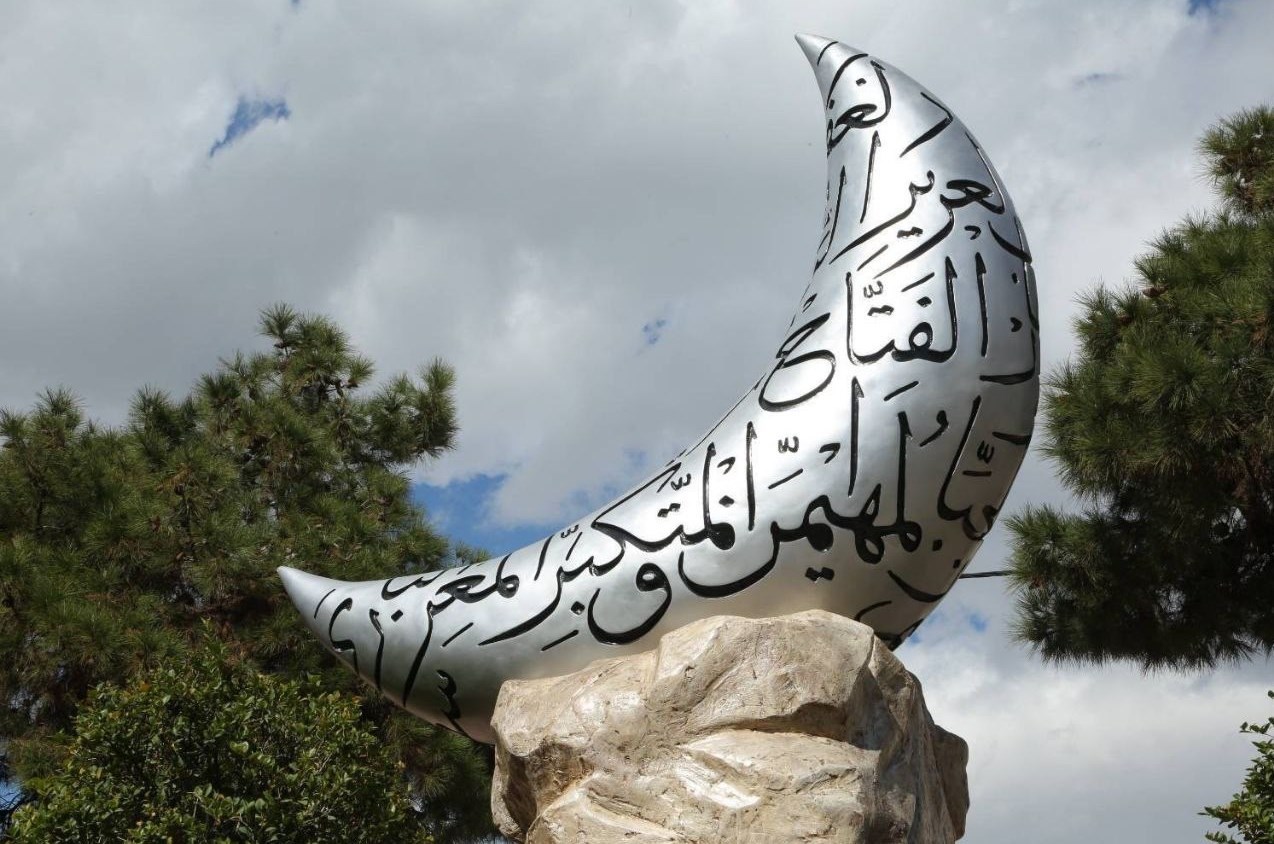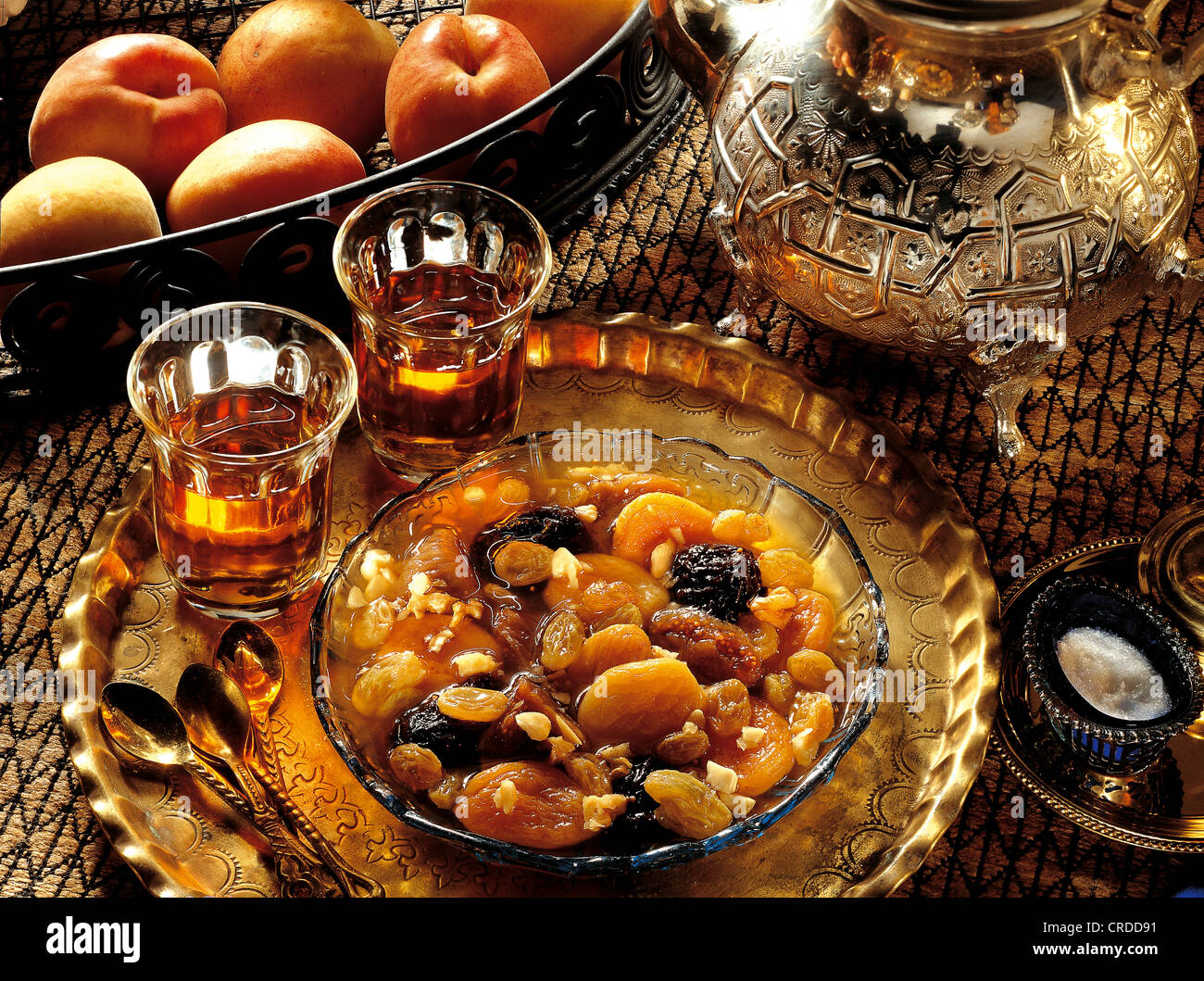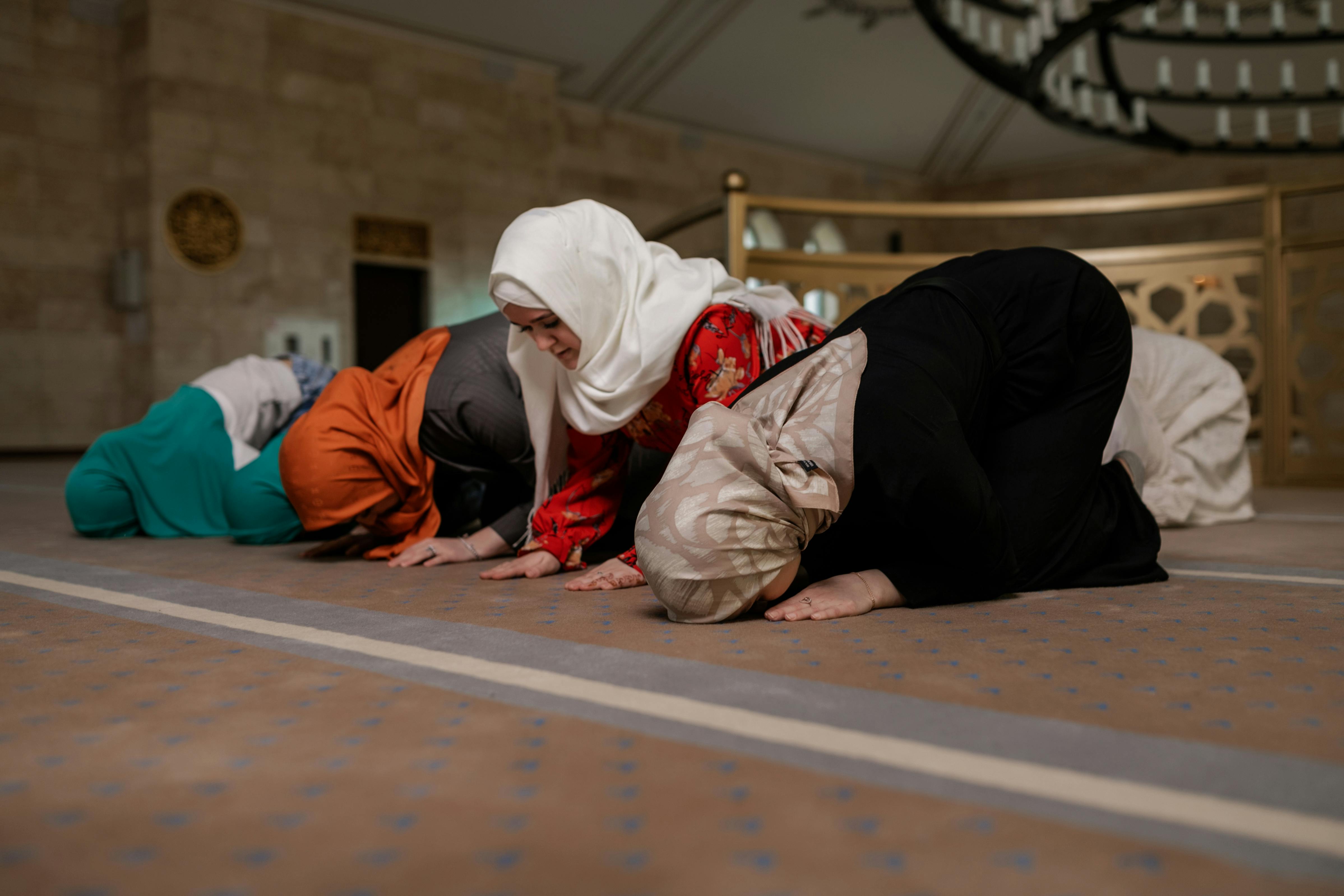Ramadan Iran - A Time For Reflection And Community
Ramadan marks the ninth stretch of time in the Islamic calendar, a period that holds a truly special place for people who follow the Muslim faith across the globe. It's, you know, a very significant time of year, one that comes around annually, bringing with it a unique rhythm to daily life. This particular month, actually, is counted as number nine in the calendar system used by Muslims, which is a way of keeping track of the year that differs from the common Gregorian calendar many of us use. So, when this ninth month arrives, it signals a distinct shift in focus for a huge number of individuals all over the planet.
During this special time, people generally observe a month of fasting, which they call sawm, alongside joining in communal prayers, known as salah. There's also a big emphasis on quiet thinking and spending time with others in their local areas. It's really about coming together, in a way, to share in these important practices. This period, too, it's almost a chance for a collective pause, allowing everyone to concentrate on their inner thoughts and their connections with their wider social group.
For nearly two billion Muslims around the world, Ramadan represents a time for deep thought, a chance to feel a stronger connection to their spiritual side, and an opportunity to build up their sense of belonging within their community. It's, you know, a moment when many people really try to focus on what matters most to them. This sacred Islamic month, as a matter of fact, offers a distinct kind of spiritual refreshing for a vast population, helping them feel more centered and connected to one another.
Table of Contents
- What Is Ramadan All About?
- The Lunar Calendar and Ramadan Iran
- How Do People Observe Ramadan?
- The Daily Practice of Fasting for Ramadan Iran
- Why Is the Crescent Moon Important for Ramadan Iran?
- Finding Prayer Times in Ramadan Iran
- Understanding Daily Prayer Schedules in Ramadan Iran
- What Spiritual Benefits Come from Ramadan?
What Is Ramadan All About?
Ramadan, in Islam, is recognized as the ninth month of the Muslim calendar, a period held as a holy month of fasting. This specific month, you know, is truly a cornerstone of the faith, carrying a lot of weight for those who practice it. It's not just any month; it's a time set aside for specific spiritual practices and a change in daily routines. So, when we talk about Ramadan, we are talking about a significant part of the yearly rhythm for a very large number of people.
This sacred period begins and also comes to an end with the sight of the crescent moon. That tiny sliver of light in the night sky, you see, acts as the official sign for when the month starts and finishes. It's a natural signal, basically, that connects the beginning and end of this important time to the cycles of the moon. This traditional way of marking the start and finish is, in a way, very much connected to the natural world and the passage of time.
Ramadan is the ninth month of the Islamic lunar calendar, which means its timing is based on the moon's phases rather than the sun's. This lunar system, you know, causes the month to shift its position throughout the regular solar year. So, it's not fixed to the same dates on the common calendar each time it comes around. Because of this, it cycles through all the different seasons over a period of years, meaning sometimes it might fall in summer, other times in winter, and so on. This cyclical movement, in a way, adds a unique flavor to its observance, as the conditions for fasting can change quite a bit depending on the time of year.
The Lunar Calendar and Ramadan Iran
The beginning of this important month traditionally relies on someone actually seeing the crescent moon. This act of sighting, you know, is a very old and established practice that signals the official start. It's not just a date on a calendar that determines it; it's an actual observation that plays a key role. For communities, including those in places like Iran, this tradition connects them to a long line of past observances, making the start of Ramadan a communal event tied to the night sky. This method, in a way, means that the precise day Ramadan begins can vary slightly from one place to another, depending on when the moon becomes visible in that specific location.
Ramadan is that month for over 1.8 billion Muslims worldwide, a truly vast number of people. It is the ninth month of the Islamic calendar, a sacred period of fasting, prayer, and quiet thought. This means, basically, that a huge portion of the world's population observes this particular time with a special kind of dedication. For all these people, including those in Iran, it represents a unified experience, a shared commitment to certain practices that define this holy time. It's, you know, a period that brings a collective sense of purpose and spiritual focus to a massive global community.
How Do People Observe Ramadan?
From dawn until sunset, Muslims generally engage in fasting. This means, basically, that from the very first light of morning until the sun dips below the horizon, they refrain from eating and drinking. It's a daily practice that defines the month for them. This particular commitment, you know, is a central part of their observance, shaping their routines for the entire period. So, for a whole month, their days are structured around this specific act of self-control and spiritual focus.
For nearly two billion Muslims around the world, Ramadan is a time of deep thought, a chance for a strong spiritual connection, and a period for building up community bonds. It's, you know, a really profound time for many people. This sacred Islamic month, as a matter of fact, offers a distinct kind of spiritual refreshing for a vast population. It helps them feel more centered and connected to one another, fostering a sense of shared purpose and collective identity. This period, too, is almost like a yearly reset button for their spiritual lives and their social ties.
IslamicFinder’s Ramadan calendar for 2025, for instance, provides the specific fasting times for Ramadan, including the schedule for the pre-dawn meal, known as Suhoor, and the evening meal, called Iftar, for various countries. This kind of resource, you know, offers complete details of prayer times as well. So, if you are looking for precise times for fasting and prayers, these calendars are quite helpful. They give you all the information you need to keep track of the daily schedule, which is pretty important for those observing the month, even for someone curious about Ramadan in Iran.
The Daily Practice of Fasting for Ramadan Iran
Ramadan is the holy month of fasting, prayer, and quiet thought observed by Muslims across the globe. It is the ninth month of the Islamic lunar calendar, observed by practicing Muslims as a month of fasting, reflection, and prayer. This period, you know, is deeply rooted in their faith and is a time when many people focus on their spiritual growth. It's a time for, you know, really looking inward and strengthening one's connection to their beliefs. For those in places like Iran, this global observance creates a shared rhythm of daily life, connecting them to a wider community of believers. This commitment, in a way, is a very personal yet universally shared experience.
It also remembers the first revelation of something truly important. Muslims generally believe that God shared the first verses of the Quran, which is their holy book, with the Prophet Muhammad through the Angel Gabriel. This event, you know, is a central part of their faith story. So, Ramadan isn't just about fasting; it's also about honoring this very significant moment in their religious history. It's, you know, a time that connects them directly to the origins of their scripture, giving the month a deep historical and spiritual meaning for people everywhere, including those in Iran.
Why Is the Crescent Moon Important for Ramadan Iran?
The Islamic, or Hijri, calendar, which Ramadan follows as its ninth month, is based on the cycles of the moon. This means, basically, that the appearance of the new crescent moon is what signals the start of each month, including Ramadan. It's a system, you know, that has been in place for a very long time, linking the religious calendar directly to natural phenomena. So, the moon isn't just a pretty sight in the sky; it's a very practical tool for marking time in this particular calendar system. This connection to the lunar cycle is pretty central to how the month is observed, even for people in Iran.
Muslims believe that God shared the first verses of the Quran with the Prophet Muhammad through the Angel Gabriel. This belief, you know, is a fundamental part of their faith. It highlights the divine origin of their holy book and the special role of the Prophet Muhammad. This foundational event, as a matter of fact, is commemorated during Ramadan, giving the month an even deeper spiritual significance beyond the acts of fasting and prayer. It’s, in a way, a time to remember the very beginnings of their scripture and its profound message for humanity, something that resonates with people globally, including those observing Ramadan in Iran.
Finding Prayer Times in Ramadan Iran
Websites like IslamicValley provide searchable directories of Islamic organizations, and you can also find resources showing Ramadan times for places like Newport News, Virginia, USA. These tools, you know, help people keep track of their daily prayer schedules. You can usually get prayer times for your current spot, or you can search for your town or city to find the specific times. This kind of information, basically, makes it easier for people to plan their day around their religious duties. So, whether you are in the US or thinking about how people observe Ramadan in Iran, having access to these precise timings is quite helpful for daily practice.
For example, you can select the specific prayers you wish to view. Prayer times for today in Newport News, Virginia, United States, are often listed with very precise timings. For instance, Fajr prayer time might be at 04:18 AM, Dhuhur prayer time at 01:10 PM, Asr prayer time at 05:02 PM, and Maghrib prayer time. This detailed breakdown, you know, helps people know exactly when to perform each of their daily prayers. It’s, in a way, a practical guide for daily spiritual life, ensuring that people can fulfill their obligations on time, a practice that is very much the same for those observing Ramadan in Iran.
Understanding Daily Prayer Schedules in Ramadan Iran
Muslim prayer times for Newport News, Virginia, United States, for October 2024, for example, allow people to check the Salah, Ramadan, and Namaz times for Fajr, Dhuhur, Asr, Maghrib, and Isha to perform prayers on time. This kind of schedule, you know, is really important for daily religious observance. It helps people keep track of the five daily prayers, which are a core part of their faith. So, having these times readily available means people can integrate their spiritual practice seamlessly into their daily lives, something that is equally important for people observing Ramadan in Iran. It’s, in a way, a very practical tool for spiritual discipline.
It’s often best to look for a Ramadan 2025 timetable, which includes prayer times, Iftar and Suhoor hours, and other helpful Ramadan content. These timetables, you know, are designed to make it easy for people to follow the daily routines of the month. They give you all the key times you need to know for fasting and breaking fast, as well as for prayers. For instance, you can find Virginia cities' prayer times for today and their praying timetable, along with an Islamic calendar. This comprehensive information, basically, supports individuals in their observance of Ramadan, providing a useful resource for everyone, including those curious about Ramadan in Iran.
What Spiritual Benefits Come from Ramadan?
By fasting from dawn until sunset, Muslims generally work on developing qualities like patience and humility. This daily practice, you know, of refraining from food and drink for long hours, is a way to build inner strength and self-control. It’s, in a way, a very personal discipline that helps them grow as individuals. The act of fasting, basically, encourages a deeper sense of appreciation for basic necessities and a greater awareness of those who might not have enough. So, it’s not just about abstaining; it’s about cultivating positive personal attributes that are valued in their faith. This practice, too, fosters a sense of spiritual discipline.
The month of Ramadan, observed by practicing Muslims as a month of fasting, reflection, and prayer, truly is a special time. It brings with it a collective focus on spiritual growth and community connection. This period, you know, allows individuals to step back from their usual routines and dedicate themselves to deeper thought and worship. The shared experience of fasting, in a way, strengthens bonds among people, creating a sense of unity. So, for nearly two billion Muslims around the world, this sacred month offers a unique opportunity for personal introspection and collective spiritual renewal, which is a powerful thing to witness.



Detail Author:
- Name : Abdiel Paucek
- Username : shermann
- Email : neil14@gmail.com
- Birthdate : 1989-11-23
- Address : 84430 Bashirian Estates Schillerfurt, MD 83908-7811
- Phone : +1 (260) 818-2853
- Company : Marvin-Tromp
- Job : Credit Authorizer
- Bio : Quo dolorum non consectetur voluptatem omnis in. Voluptatem accusamus dolor reiciendis aliquam. Nulla quas asperiores iure illum quia. Exercitationem placeat distinctio repudiandae et rerum.
Socials
twitter:
- url : https://twitter.com/ruth_terry
- username : ruth_terry
- bio : Tempore mollitia maxime blanditiis architecto aut magni aut. Nobis est ut minima molestiae. Quia qui aliquid quia. Nisi vitae aut quam aut qui quibusdam.
- followers : 3726
- following : 2507
facebook:
- url : https://facebook.com/ruthterry
- username : ruthterry
- bio : Praesentium hic maxime quos vitae molestiae.
- followers : 1273
- following : 2662
linkedin:
- url : https://linkedin.com/in/rterry
- username : rterry
- bio : Corrupti est quidem facilis odit.
- followers : 4906
- following : 1961